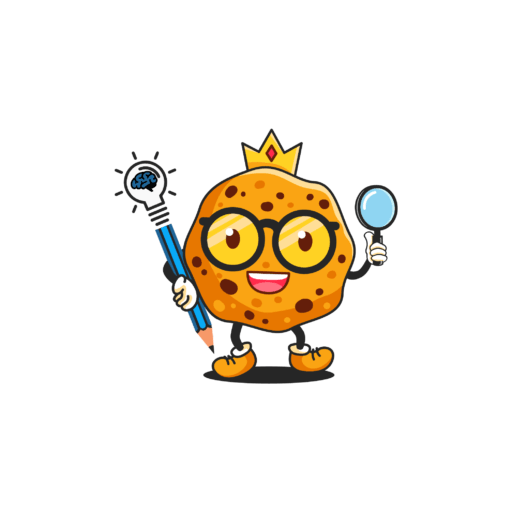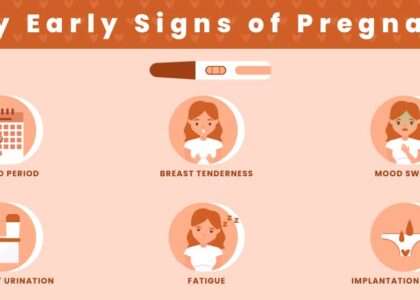They look nothing like the textbook illustrations we grew up with—those neat, twisted ladder diagrams of DNA. Under a microscope, actual DNA molecules appear as ghostly, tangled threads, almost alien in their ethereal complexity. Yet these seemingly chaotic strands hold brilliant blueprints that shape everything from our eye color to how our brains respond to stress. Most astonishing of all? These microscopic architects are now revolutionizing how we approach mental health treatment, offering hope to millions who’ve struggled with the frustrating trial-and-error nature of traditional psychiatric care.
Understanding the Genetics-Mental Health Connection
The Role of Genes in Mental Health
Your genetic code acts like a master conductor orchestrating the symphony of your brain chemistry. These genes influence how your body produces and processes crucial neurotransmitters—the chemical messengers that regulate mood, anxiety, focus, and emotional resilience. Think of serotonin as your brain’s natural mood stabilizer, dopamine as its reward system, and norepinephrine as its alertness regulator. Your genes determine not just how much of these chemicals you produce, but how efficiently your brain uses them.
While environmental factors undoubtedly shape mental health—trauma, stress, relationships all matter deeply—genetics explains why two people facing identical challenges might have vastly different psychological responses. One person’s genetic makeup might predispose them to anxiety disorders, while another’s provides natural resilience against depression. It’s not about genetic destiny, but rather understanding your unique biological starting point.
What Genetics Testing Reveals?
Modern genetic testing for mental illness unveils variations in your DNA that directly impact mental health treatment outcomes. These tests examine specific genes that control:
• How quickly your body breaks down psychiatric medications
• Your sensitivity to certain drug side effects
• The efficiency of your serotonin and dopamine receptors
• Your likelihood of responding to specific medication classes
For instance, variations in the CYP2D6 gene can make you metabolize antidepressants either too quickly (rendering them ineffective) or too slowly (causing overwhelming side effects). Similarly, alterations in the SLC6A4 gene, which codes for serotonin transporters, can predict whether you’ll respond better to SSRIs or need an entirely different approach.
From Trial and Error to Precision Medicine
Limitations of Current Approaches
The traditional approach to mental health medication feels like throwing darts blindfolded. Statistics paint a sobering picture: nearly 40% of patients with major depression don’t respond adequately to their first medication. The average patient tries 2-3 different antidepressants before finding one that works, a process that can stretch across months or even years of suffering.
This pharmaceutical roulette isn’t just time-consuming—it’s emotionally exhausting. Each failed medication attempt can deepen despair, while side effects ranging from weight gain to emotional numbness drive many patients to abandon treatment entirely. The dropout rates are staggering, with studies showing up to 50% of patients discontinuing their medications within the first six months.
How Genetics Testing Transforms Treatment?
Enter pharmacogenomics—the science of how genes affect drug response. By analyzing your genetic profile, doctors can now predict with remarkable accuracy:
• Medication metabolism rates: Whether you’re a rapid, normal, or slow metabolizer determines optimal dosing
• Drug-drug interactions: How your genetics might cause unexpected reactions when medications are combined
• Side effect likelihood: Which medications are most likely to cause weight gain, sexual dysfunction, or other unwanted effects
This isn’t science fiction—it’s happening in clinics today. A patient whose genetic testing for mental illness reveals they’re an ultra-rapid metabolizer of certain antidepressants can skip medications doomed to fail and move directly to alternatives with better odds of success. The guesswork diminishes, replaced by data-driven decisions.
Practical Applications and Emerging Benefits
Personalized Medication Management
The real-world impact of genetic-guided treatment is profound. Consider Sarah, whose genetic profile shows a variation making her poorly responsive to SSRIs but highly compatible with SNRIs. Instead of enduring months of failed SSRI trials, her psychiatrist can confidently prescribe venlafaxine from day one.
Genetic markers guide increasingly sophisticated treatment decisions:
• Patients with COMT gene variations might benefit more from medications targeting dopamine
• Those with MTHFR mutations may need specialized folate supplements alongside traditional antidepressants
• Individuals with certain HLA-B variants can avoid medications with dangerous skin reaction risks
Early Intervention and Prevention
Perhaps most exciting is how genetic testing for mental illness enables proactive mental health care. Identifying genetic risk factors before symptoms emerge allows for:
• Targeted stress management techniques for those genetically predisposed to anxiety
• Early therapy interventions for individuals at high risk for depression
• Lifestyle modifications that can mitigate genetic vulnerabilities
Young adults with family histories of bipolar disorder, for instance, can undergo genetic screening to understand their risk profile and implement preventive strategies—regular sleep schedules, stress reduction techniques, and early therapeutic support—before crisis points emerge.
Beyond Medications
Genetic insights extend far beyond the realm of pharmaceutical choices. Your genetic profile can indicate whether you’re likely to respond better to:
• Cognitive-behavioral therapy versus psychodynamic approaches
• High-intensity exercise versus meditation for mood regulation
• Morning versus evening therapy sessions based on circadian rhythm genes
These insights transform mental health from a one-size-fits-all model to truly personalized care that honors your unique biological blueprint.
Ethical and Accessibility Considerations
Despite its promise, genetic testing raises important concerns. Cost remains a significant barrier—comprehensive pharmacogenomic panels can run $300-$2000, with insurance coverage varying wildly. This creates a troubling scenario where personalized mental health becomes a luxury rather than a standard of care.
Privacy concerns loom large, too. Genetic data revealing mental health predispositions could potentially impact employment, insurance rates, or personal relationships if not properly protected. While laws like GINA (Genetic Information Nondiscrimination Act) offer some protection, gaps remain.
The equity question is particularly pressing: how do we ensure these advances don’t create a two-tier system where only privileged patients access precision psychiatry while others continue suffering through trial-and-error approaches? Some health systems are addressing this by integrating genetic testing into standard care protocols and negotiating bulk pricing to reduce costs.
Conclusion
The integration of genetic insights into mental health treatment represents a fundamental shift from hoping medications work to knowing why they will or won’t. We’re moving from a world where finding the right treatment felt like solving a puzzle in the dark to one where genetic testing illuminates the path forward.
This isn’t about replacing the human elements of mental health care—empathy, therapeutic relationships, and holistic support remain irreplaceable. Instead, DNA insights add a powerful tool to our treatment arsenal, making care more precise, effective, and ultimately more humane.
The true wonder isn’t just that these alien-looking DNA strands can guide our treatment choices—it’s that this non-human intelligence, written in a four-letter chemical alphabet, understands aspects of our mental health that we’re only beginning to grasp ourselves. As we decode more of this genetic language, we edge closer to a future where mental health treatment is as personalized as our DNA is unique, offering hope to millions who’ve felt lost in the maze of traditional psychiatric care.
Disclaimer
We are an educational platform, not professional counselors, therapists, or medical experts. The content on this blog is for informational purposes only and should not be taken as professional parenting, medical, psychological, or legal advice. Every family and child is unique, and what works for one may not work for another. Always seek guidance from qualified professionals before making decisions about your family’s health, education, or well-being. I share my personal experiences here purely for entertainment purposes, so please do not take them too seriously or apply them to yourself without proper consideration.





